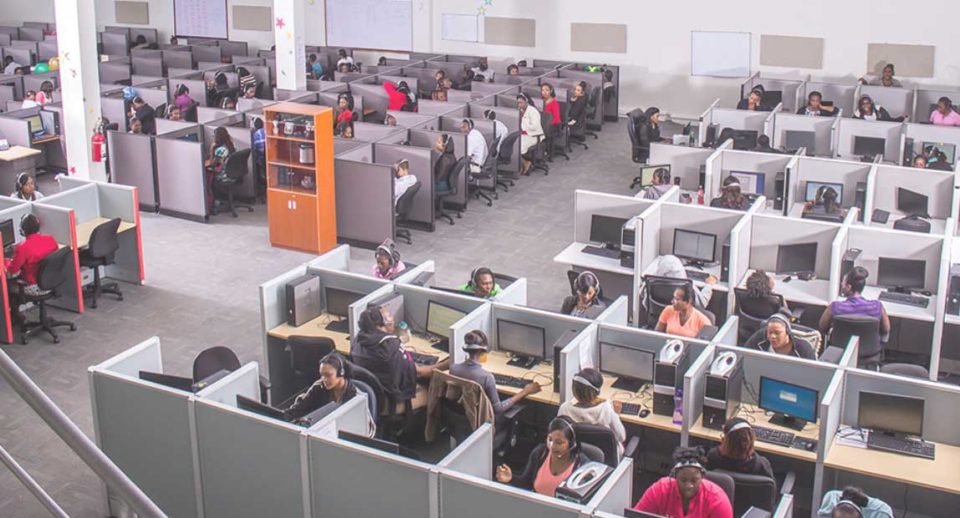If you are given a toll free number to call your bank or utility company or say a hotel or airline to make a booking, to register a complaint or to be instructed how to access a service, chances are you are not actually calling that business, but interacting with an agent from a call centre or a Business Process Outsourcing (BPO) operation not located in your town or even in your own country. That call centre or BPO is an independent contracted operator that has agents trained to resolve an issue or to process a booking or an order.
While most Jamaicans here at home are generally aware of their existence, few of us have any idea of the range and scope of the services call centres offer, or how important they have become as part of the Jamaican economic landscape. For Jamaicans who migrated before the year 2000, the BPO industry as we know it today was non-existent and few of you living in North America, the UK and elsewhere would have any notion of what a call centre or a BPO is, although you most likely engage with a BPO service provider from time to time. Imagine then, the shock and dismay to learn that in early April, 2020, one of these call centres became the epicentre of the covid-19 infection in Jamaica, accounting for almost 50% of Jamaica’s total infections by the end of that month!
Jamaicans have mixed feelings about call centres; on the one hand they grudgingly accept them as one of the few sectors that provides mass employment for some university graduates, high school leavers as well as thousands of unattached youth with limited skills, and at the same time provide spin-off benefits for the construction, transport and banking sectors. On the other hand, call centres are seen by some as privileged foreign owned operations receiving special concessions from government but in return pay low salaries and offer few benefits to the thousands of young Jamaicans who have few other options. But how much of this is myth and how much reality? And what are call centres or BPOs anyway, and when and how did they become such an important component of the country’s economic activity?

What’s in a name; Call Centre or BPO
A call centre and a BPO are often referred to interchangeably to describe an operation that has been contracted by a company or a number of companies to handle a particular business process.This is referred to as ‘outsourcing’, a practice that allows companies, especially large ones to focus on their main business operation, say manufacturing a product, while having external companies conduct some core strategic activities such as help-desk services. The rationale is that external service providers are usually better at performing these tasks because such activities are their primary focus to which they dedicate their time, resources, training and technology to mastering these jobs and improving services to clients. Large multinationals increasingly outsource to countries overseas because of the availability of a low-wage labour force that allow these firms to reduce their expenses and increase profits.
Call Centres (also referred to as Contact Centres) are really a sub-set of BPOs. They typically handle multiple communication channels, including incoming telephone calls, emails, chat and video calls and generally act as a helpdesk in taking orders, bookings, handling complaints or taking clients through online processes or simply providing information. They also have agents who make calls to potential clients on a 24-hour basis like the character “Jake from State Farm” in the American TV ad who contacted a hapless husband late at night which resulted in him having to prove to his disbelieving wife that it is a telemarketer trying to sell him insurance and not a secret lover!
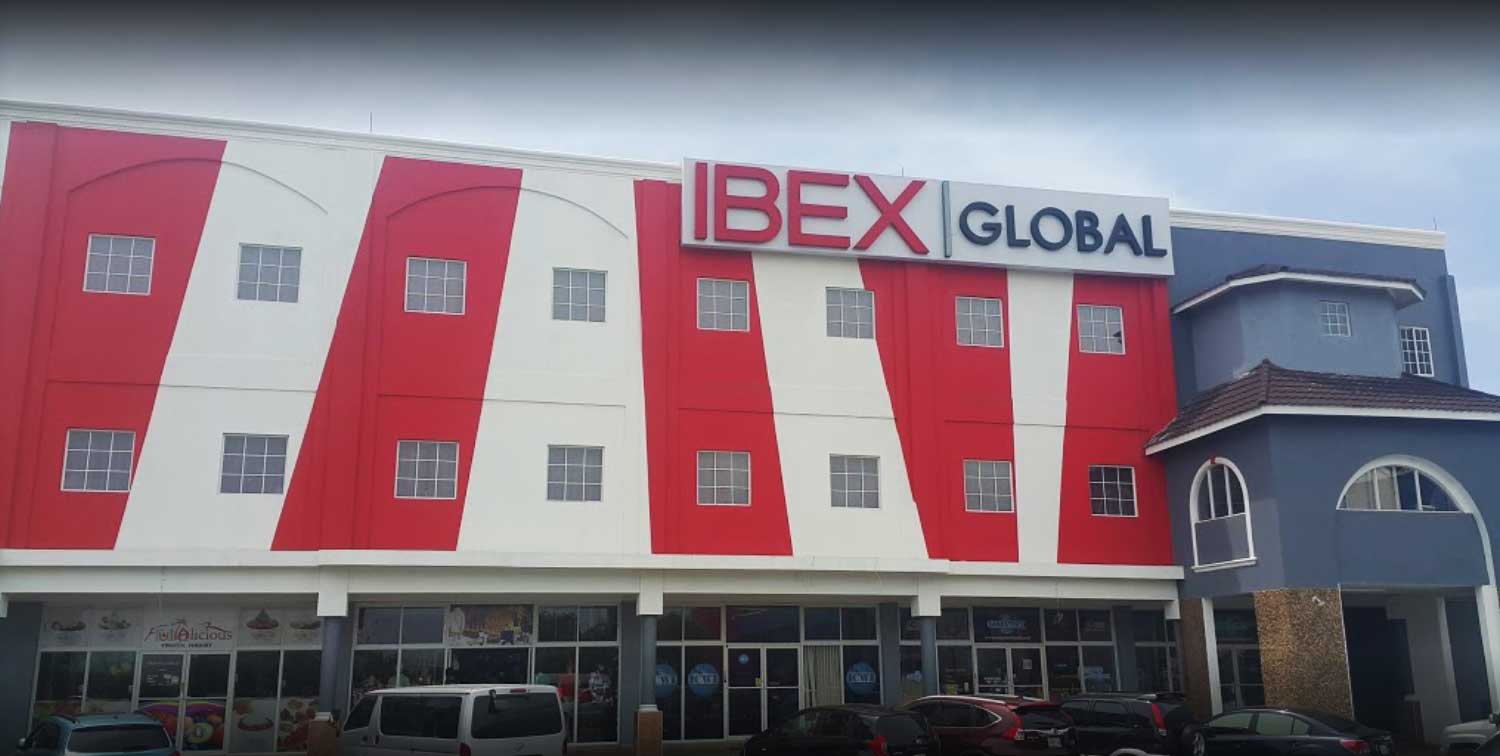
BPOs while offering call centre services do more than that. They engage in providing what is termed ‘back office’ functions, those administrative services essential for the smooth running of a company like accounting, payment processing, IT services, HR, regulatory and compliance, quality assurance, sales and collections as well as high-end capabilities such as financial and market research, credit rating, customer analytics, cybersecurity services, automated data processing and much more. These require specialist and higher level skills than those that would normally be required by a call centre.
What Makes Jamaica an attractive location for Call Centres?
Jamaica has long been attractive to American companies for outsourcing of their operations. Prior to the 1990s, outsourcing activities were focused on the garment industry in which tens of thousands of untrained (as distinct from unskilled) Jamaican workers were hired in Freezones located in Montego Bay and Kingston to sew and stitch garments for re-export to the USA. Freezones operated like offshore islands of Jamaica hosting operations that paid low wages, offered few benefits and little job security. Once these companies found lower wage-earning workers in other countries, they simply packed up and moved their equipment to places like The Philippines and Bangladesh. This phase of outsourcing was replaced in the 1980s and early 1990s by data processing operations which called for a higher level of skills and speedy turnaround times. Jamaica provided an ideal location for this activity because of its geographical location being close to the east coast USA mainland and the existence of a ready intelligent workforce skilled in the English language.
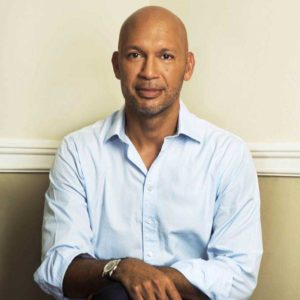
Patrick Casserley, an industry veteran and a pioneer in BPO operations in Jamaica explains that the BPO sector at this time centered primarily on insurance claims entry, credit rating entry into client systems, international courier, slip entry. This activity involved the shipping of massive amounts of paper to Jamaica by air every day, which gave Jamaica a competitive advantage because of its geographic proximity to the US. Montego Bay in particular, became the hub of these activities because of the number of flights from the US arriving there taking tourists to the island.
Montego Bay
It was therefore natural that Montego Bay would become the hub of BPO operations in Jamaica and the Caribbean when the availability of voice communications technology enabled companies like Casserley’s E-Services Group to bring voice services to Jamaica. That was in the year 2000 heralding the start of the modern phase of the Call Centre industry in Jamaica. In an October 25, 2017 Gleaner article, Casserley underscored the synergies that existed between the tourism and nascent BPO industries that provided fertile ground for the latter’s development. He writes:
Invariably an agent had at least one relative who resided in the US with millions of visitors teeming to come to Jamaica every year and over the years BPOs did not seem as foreign as Mumbai or Manila. Indeed, oftentimes we had a difficulty getting the caller off the phone as they would ask questions about where to stay in Jamaica or how warm it was, considering that they were calling from Minneapolis, Minnesota, Chicago, Illinois or Omaha, Nebraska in the dead of winter.
Jackie Sutherland operates the second largest owner-managed BPO in Jamaica. Contex360 BPO Solutions provides telecom, healthcare, financial, insurance, media, order fulfillment, travel and hospitality services from its Montego Bay Freeport location employing a cadre of 500 locals on a 24-hour basis. Contex360 began operations in 2007 which makes the company and Jackie herself one of the most experienced in the BPO sector and therefore ideally qualified to provide jamaica global online with an insider’s perspectives on BPO operations in Jamaica. She also emphasizes the link between the BPO and tourism sectors in the early development of the BPO industry. As a tourist destination, Montego Bay was seen as a safer and less risky location than Kingston and provided the kinds of amenities that were attractive to directors of client companies in the form of luxury hotels, golf courses etc. In the early years when the number of agents required was not as great as it is today, the city and its surrounding communities provided a pool of Jamaican workers whose exposure and interaction with American tourists made them familiar with American culture and the nuances of American speech. This made it easier for them to relate to clients and able to adapt a neutral accent, once the national or even regional origin of the client was discerned. So sophisticated were some of the agents that they could readily distinguish between American and Canadian accents. Perhaps the most intuitive of Jackie Sutherland’s observation is in identifying a special talent among agents in western Jamaica – that of the power of persuasion which earned for them a reputation with client companies of being among the best agents in debt collection and telemarketing. Regrettably, a more sordid side of that talent of persuasion is the scourge of lottery scamming for which Montego Bay has become noted in recent years.
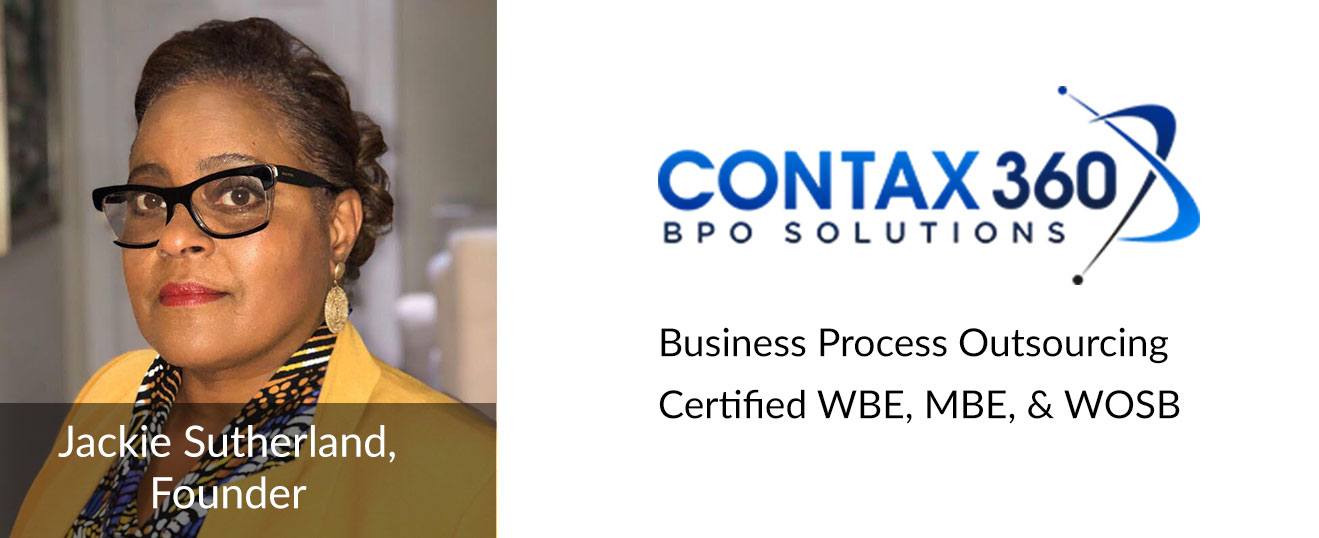
The Global Skills Sector in Jamaica
Fast forward 20 years later to 2020, the year of covid-19. After two decades of unbridled and exponential growth, the sector faces a crisis from which it might be difficult to fully recover in the short term. No longer referred to as BPOs, the sector has morphed into being known as the Global Skills Sector (GSS) reflecting the increased range and sophistication of the services it offers and the extent to which international businesses and governments have come to rely on those services. In the case of Jamaica this is where the sector is today:
- Some 70 companies varying in size operate in the sector mainly in Montego Bay, Mandeville and Portmore/Kingston.
- It has become the fastest growing and one of the largest sectors in Jamaica with revenues accounting for approximately 4% of GDP
- The sector is one of the largest providers of labour numbering 40,000 young people between the ages of 18 and 30 of whom 70% are women. The sector has largely been responsible for the country’s declining unemployment rate which has fallen from 15% in 2013 to 7.5% in 2019
- Estimates of the contribution to the economy in money terms range between US$500 and US$700 million annually
- The sector enjoys duty-free concession of 21% on imports but pays to the government a 15% levy on its operations regulated within a Special Economic Zone regime
Enter Kingston and Portmore
The rapid expansion of the BPO sector over the last ten years has been accompanied by a dramatic shift in preference by new entrant/investors for Kingston and the adjacent dormitory community of Portmore as preferred locations to house their operations. However, Montego Bay remains the hub of the BPO industry by sheer number of companies and employees. Several factors account for Kingston as a preferred location, including a more well-developed infrastructure, superior connectivity and a larger talent pool required by the large international operators which include companies like Ibex, Sutherland Global, Allorica, HGS, ItelBPO, Fusion and Conduent. Together they now employ one-third of the total number of workers in the BPO sector. The ultra-modern 58 HWT Tech Park located at 58 Half Way Tree road in Kingston is the largest BPO facility in the English-speaking Caribbean boasting more than 230,000 square ft. of office space for BPOs and other technology-based companies.
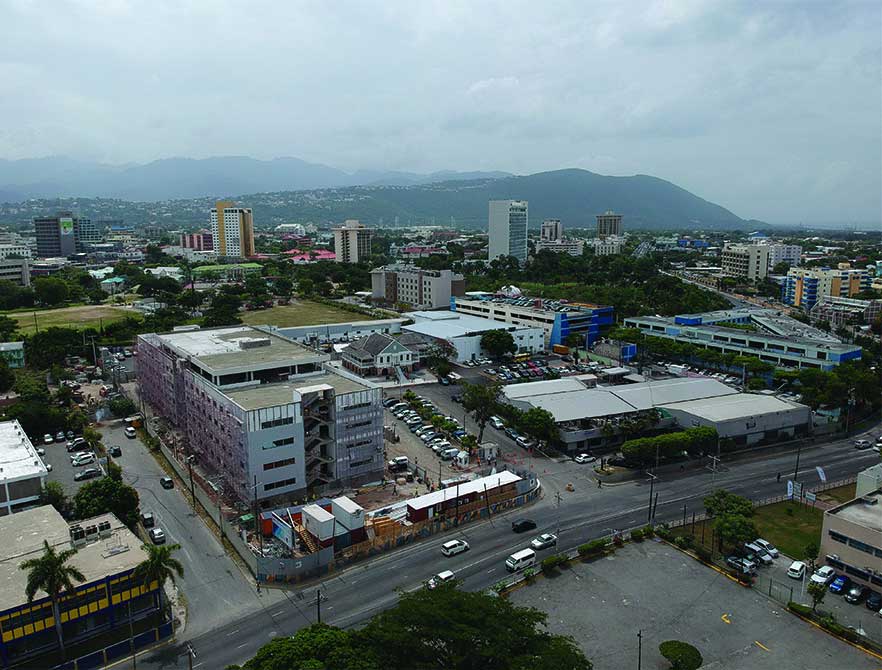
Given the vast number of young people with low level skills employed in the sector, call centres are sometimes perceived as minimum wage-earning sweatshops. Not so, says Jackie Sutherland; that perception is a carry-over from the days of the garment industry and the physical location of some of the early BPOs in buildings previously occupied during that era like the old Jockey factory outside Montego Bay.The sector not only attracts university trained graduates among its recruits but entry-level salaries are comparable or higher than in the tourist industry and employees are incentivized to earn considerably above their base salaries. Compared to the tourist industry for which employment can be of a seasonal nature, employment in BPOs is more stable and provides opportunities for career advancement where agents can become Managers and where there are increasing openings for trained professionals with specialized skills like in IT, software development, animation, logistics etc.

Leading players in the industry organized through the Global Services Association (GSAJ) headed by its dynamic and articulate President, Gloria Henry, recognize the importance of training and the need for structured programmes for upgrading the skills of workers if the sector is to remain competitive in the global marketplace. The GSAJ has successfully lobbied the government for support and in 2019 the IDB granted a US$15 million loan to be used to among other things, develop the talent pool for the BPO sector under the Global Services Sector (GSS) programme and which is managed by JAMPRO with the support of the GSAJ and other stakeholders. Institutions like the Caribbean Maritime Institute and the Portmore Community College also provide training courses specifically geared to the sector with the latter planning to offer a degree in BPO Management.
AN UNWELCOME VISITOR: COVID-19
This is the context in which Jamaicans received the news on April 9, 2020 of an outbreak of the covid-19 virus at the Portmore location of one of the call centres. This immediately sent shock waves throughout the country because call centres had been allowed to remain open because of the sensitivity of the nature of the services they performed and their importance to the economy. The understandable fear among Jamaicans was that call centres could become the breeding ground for the spread of the virus, given the proximity with which hundreds of agents worked in a single space and shared equipment like headsets and computer stations across different shifts. It was inevitable that as the rising number of infections among employees of the Portmore-based call centre grew and the work site became the epicentre of the pandemic in Jamaica, that company would come to represent in the perception of Jamaicans, the imminent danger presented by ALL all centres islandwide. Predictably the government was forced to announce a 14-day shutdown of the sector on April 22, with the exception of selected call centres whose continued operation was deemed vital for the provision of local services like manning the Covid-19 hotline.
Events have since proven that the fear and stigma cast on the BPO industry have been totally unfounded as the number of infections in other call centres have been minimal and have been confined to Kingston and Portmore. This has led the GSAJ to highlight the fact that among its member companies, there have only been four reported cases of the virus, all related to employees working remotely. It boldly asserts that this has been due in large part to the vigilance and efforts of these companies to prevent the spread of the virus among employees. However, the GSAJ remains deeply concerned about reported acts of discrimination against workers in the sector by members of their families, communities and the wider public. This concern is shared by the Private Sector Association of Jamaica (PSOJ); the Jamaica Manufacturers and Exporters Association(JMEA); and the Jamaica Chamber of Commerce (JCC) which have all joined with the GSAJ in publicly urging Jamaicans to treat all workers with the dignity, civility and respect they deserve regardless of their place of employment.
The outcome of the BPO shutdown is bound to have immediate economic consequences both for the sector itself and for government revenues, not to mention the tens of thousands of young people who have been sent home even if temporarily. The situation may not be as gloomy as might appear at first sight as many of the BPOs have been quick to make the necessary adjustments to enable some 13,000 employees to remain on the job working remotely from home. Once BPOs are able to institute the necessary security safeguards and protocols and can be assured of an even more reliable broadband connectivity, the covid-19 crisis might well prove to be a catalyst in pushing players to experiment in new modalities of operations including more agents working remotely from home, permanently. The savings for companies could be substantial, particularly in relation to transport costs and also result in a widening of the talent pool available to include stay-at-home moms and multi-talented, multi-tasking young people.
Jackie Sutherland remains bullish about the prospects for the industry and its ability to recover from what she sees as a temporary setback. She does not believe the sector is anywhere near being saturated in terms of the number of players, as evidenced by the number of large companies who have recently located in Kingston and others that have announced plans for expansion. While it is not an easy business to get into because of the size of resources needed and the level and range of contacts that are essential to acquire clients, she believes it could be a lucrative area for Jamaicans abroad who wish to invest in a new growth sector. She also believes that there is an opportunity for well-placed Jamaicans in the diaspora to earn sizeable fees by acting as brokers in bringing clients and referring businesses to call centres here.
*****************
Call Centres and a Global Skills Sector are here to stay and clearly have a critical role to play in Jamaica’s modern development,especially in the post covid-19 future. The dialogue ought not to be whether they are good or bad for Jamaica but for Jamaica to leverage its proven advantages of strategic geographic location, its record of high level performance in outsourcing delivery, its available educated and potentially large educatable young population, to solidify the country as the preferred location for global skills outsourcing.


